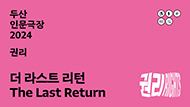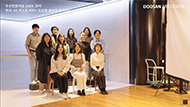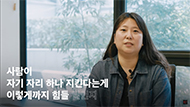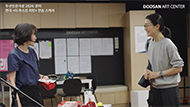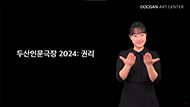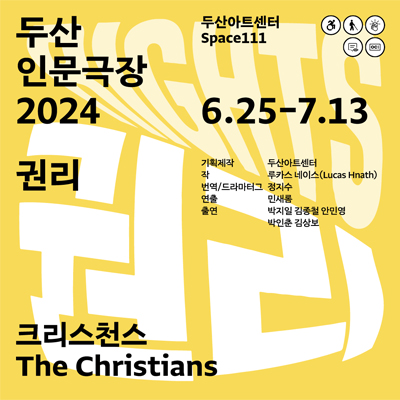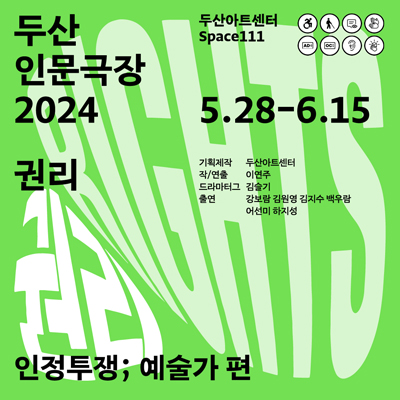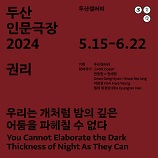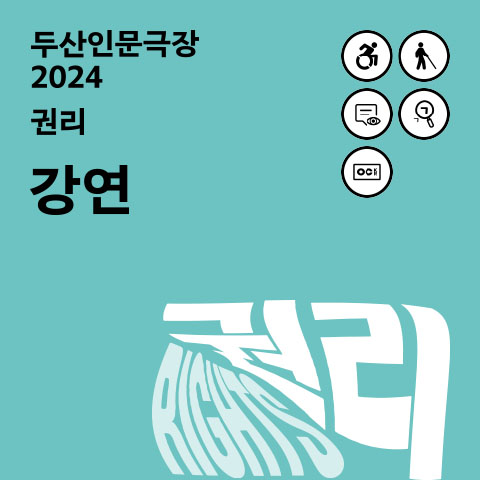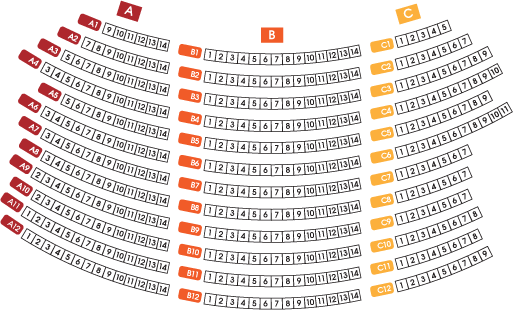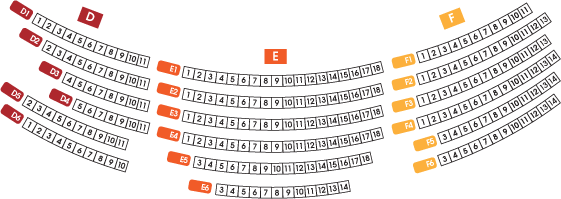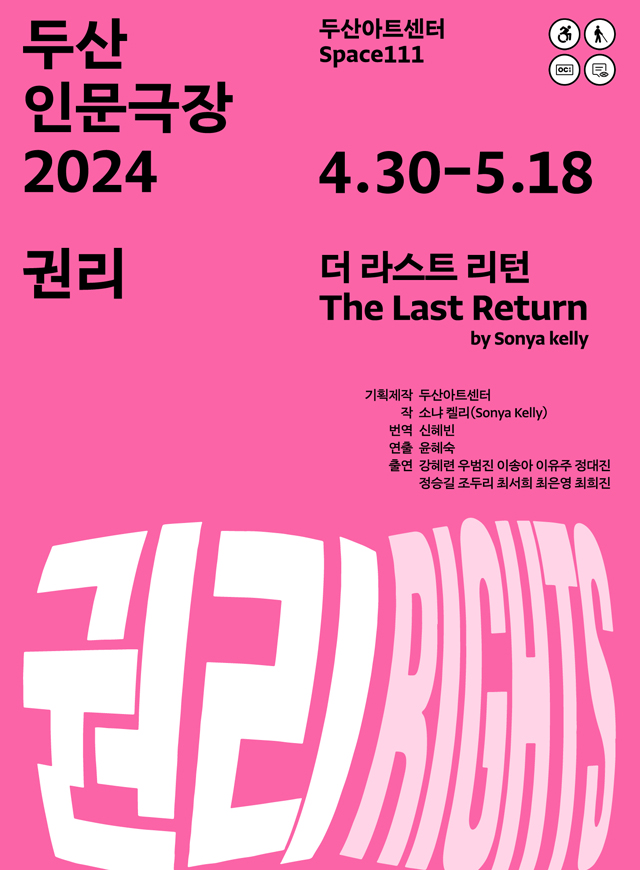
The Last Return
DOOSAN Humanities Theater 2024: Rights
Apr.30.2024 ~ May.18.2024Space11135,000won
Over 13 age
100 min
*Artist Talk – 5.5(Sun), 5.12(Sun) after the performance
- ProgramDOOSAN Humanities Theater
- DAC Artists Youn Hyesook
DOOSAN Humanities Theater 2024: Rights
DOOSAN Humanities Theater brings together sociological, humanities and artistic imagination on humans and society. Each year, a theme is selected to be discussed in a variety of ways, including performances, exhibitions, lectures, and artist talks.
Past subjects include ‘Big History’, ‘The Age of Distrust’, ‘Exception, Mutation, or Abnormality on the Borders’, ‘New Imagination on the Extended Territory’, ‘Conflict’, ‘Altruist’, ‘Apartment Nation’, ‘FOOD’, ‘Fairness’, ‘Age’. The theme for 2024 is "Rights".
Rights
“As to exposing or rearing the children born, let there be a law that no deformed child shall be reared.”
- Aristotle, Politics
The general premise regarding human rights is that they are "attached" or "inherent" to us from birth. Even a child with anencephaly should not be subjected to murder or abuse. We abhor the idea that a child could be born into slavery before being able to determine their own destiny. But the concept of "rights," as obvious as it seems, is not an ancient one. Where did rights come from?
Did humans and other beings originally possess rights or receive them from another subject? If rights could be traded or transferred, are there any reasons that prevent the transfer of rights to non-human beings, such as animals, robots, and rocks?
In reality, history has generally moved in the direction of people without rights coming to possess rights. In ancient Greece, those who possessed rights were male citizens. Over time, enslaved people gained freedom and women recovered their rights. Time tends to flow in a way that respects the rights of the minority. The number of people with rights is ever increasing, but the desires of these people are also accelerating the end of the Earth’s time.
Ironically, it is the collective desires of humans who have regained their “rights” that are tilting the climate off its axis and triggering changes. Purely asserting the rights of humans has generated a sense of crisis about the potential extinction of humanity, raising questions about whether entities other than humans have any rights at all. There is a growing recognition that the rights of animals, plants, and artificial creations and objects must first be considered before humans take action.
Rights are often the product of struggle. The expansion of rights is a process of sharing, which inevitably triggers conflict. However, the conclusion must always be harmony and peace. Humans engage in complicated fights to expand these rights to non-human entities; an expansion that must take place because it is the only way for humans with rights to live with each other. The reason humans must focus on the non-human in the Anthropocene is that humans can only save the Earth when they share their rights.
The Last Return
Written by Irish playwright Sonya Kelly, The Last Return is based on her personal experience of waiting for a returned ticket for a sold-out show of Richard III in Berlin on New Year’s Day in 2019. After premiering at the Galway International Arts Festival in 2022, The Last Return was performed at the Edinburgh Festival Fringe and Dublin Theatre Festival, winning several awards and nominations. The Korean production is directed by Hyesook Youn, whose plays include Transfers and SECOND CHANCE.
Oppenheimer’s Return to Hinden burg is a widely acclaimed play that conveys the truth of life. After a series of sold-out shows, only the finale remains. As a thunderstorm rages on
outside, a professor, an accountant, a soldier, and a person with a mysterious bag wait in line, desperately hoping for returned tickets. Who will claim the last returned ticket?

